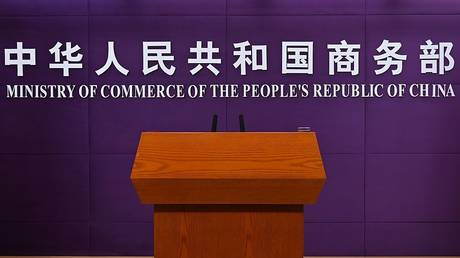
The US and China are planning a virtual summit between President Joe Biden and his Chinese counterpart Xi Jinping this year, a US official told the media, noting a departure in tone from disastrous talks in Alaska in March.
“We do have out of today’s meeting an agreement in principle to hold a virtual bilateral meeting between the leaders before the end of the year,” a US official told reporters after Jake Sullivan, a national security advisor to President Joe Biden, and director of China’s Central Foreign Affairs Commission Yang Jiechi held closed-door talks in Zurich, Switzerland on Wednesday.
The official stressed that the “substantive and constructive” conversation was in stark contrast to the highly contentious face-to-face meeting in Anchorage, Alaska in March, where top US and Chinese diplomats openly exchanged verbal jabs.
“Today really involved a genuine back and forth, which was quite welcome – a different tone than Anchorage,” the official noted, adding that the US hoped the talks in Zurich would serve as a “model for future encounters.”
In a statement quoted by Reuters, White House spokesperson Jen Psaki said the date and details of a virtual summit were not yet finalized.
China’s Foreign Ministry said the meeting between Yang and Sullivan was constructive in nature, with the sides having agreed to “strengthen strategic communication” and take steps to avoid confrontation in the future.
Biden and Xi have not met in person since the US leader took office in January, but spoke twice over the phone, including a conversation last month.
During a tense summit in Alaska, US State Secretary Antony Blinken accused Beijing of threatening “the rules-based order that maintains global stability.” China’s Foreign Minister Wang Yi responded by urging Washington to “stop advancing its own democracy in the rest of the world,” and “abandon the Cold War mentality and the zero-sum game approach.”
Relations between the US and China deteriorated significantly after Biden’s predecessor, former President Donald Trump, launched a trade war against Beijing. The countries also clashed on the issues of anti-Beijing protests in Hong Kong, China’s treatment of Tibet, alleged persecution of Uyghurs in its Xinjiang region, and the military activity in the South China Sea.
Over the weekend, the State Department accused China of “provocative” military maneuvers near Taiwan. China’s Foreign Ministry responded on Monday by saying that American military aid to Taiwan threatens regional peace and stability.
Think your friends would be interested? Share this story!




